Welcome to the PAC Global Leadership Awards Innovation Trends update brought to you in partnership with UK packaging innovation consultancy, ThePackHub. We have hand selected five packaging innovation highlights that we think are deserving of mention and will pique your interest. Look for more of these in the coming weeks!
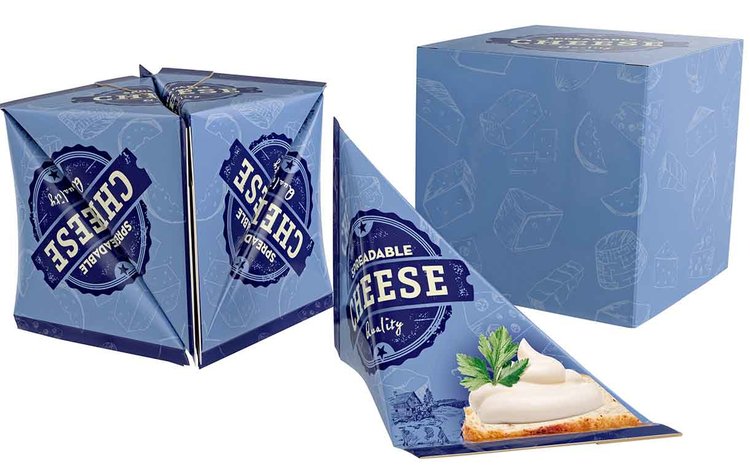
Leading food processing and packaging company Tetra Pak has announced the introduction of a new pack format that has good supply chain space saving opportunities as well as the opportunities to reduce the amount of packaging required. The solution allows six products to be collated to form the shape of a cube. This improves the use of space in distribution and storage. The Tetra Classic Aseptic 65ml Cube can be used for dairy, juice and liquid food products. The pack uses around 40% less space compared to the company’s Classic Aseptic 65ml packs. Customers with existing Tetra Classic Aseptic filling machines can switch to this new pack format with a minimal investment and a quick payback. A Southeast Asia cooking ingredient brand has introduced the pack to help mitigate market logistic challenges.
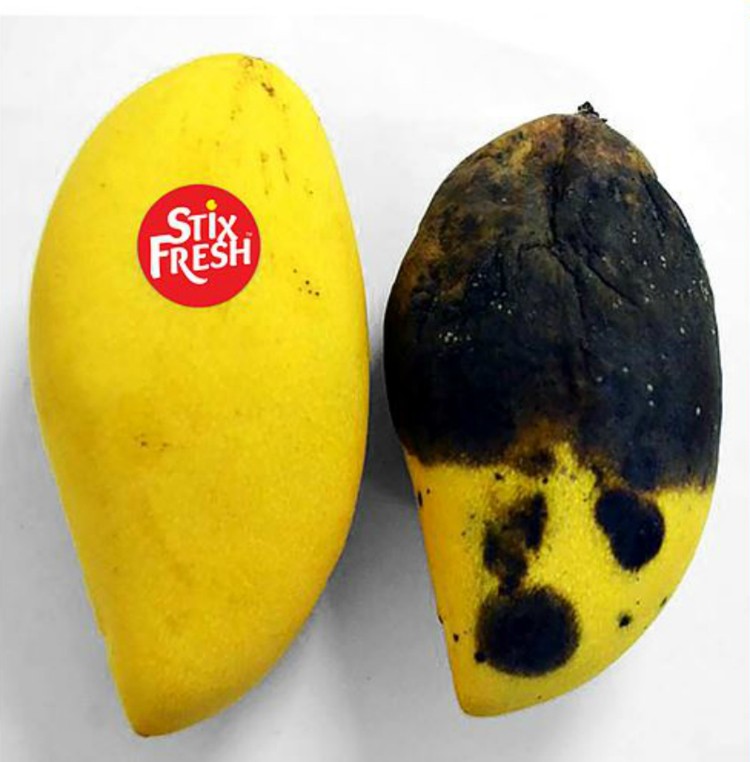
A Seattle business is partnering with a Malaysian inventor on a new way to help keep fruit products fresher for longer. The new solution is a sticker that is placed on the produce that can help increase the freshness of fruit by up to two weeks. Stixfresh is a label which can be applied directly to fruit that generate ethylene as they ripen. The sticker’s coating is made up of a formula of beeswax and ionised sodium chloride. The compounds work to create a protective layer around the fruit. The innovation is set to have a positive impact on a variety of fruit that require long travels in the supply chain. The sticker was originally invented to target mangoes but can also apply to fruit such as apples, pears, kiwis, avocados and oranges. The sticker does not need to be removed as it is edible and can be eaten. Stixfresh have launched a crowdfunding campaign via Indiegogo.
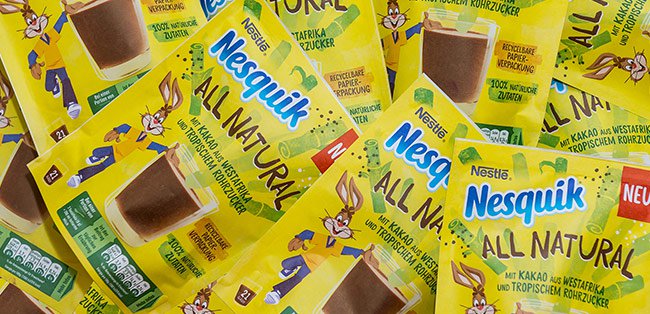
Nestlé announced last year its ambition to make 100% of its packaging recyclable or re-usable by 2025. The brand owner has been busy making this a reality with the recent introduction of Nesquik All Natural in five European markets in a recyclable paper pouch. This is reported to be a first of its kind. The launch of the new Nesquik variant sees a departure from recyclable plastic to a switch to recyclable paper packaging. The new pouch is made using a coated paper that is recyclable in existing paper streams. The paper is sourced sustainably and is certified by the Forest Stewardship Council (FSC). The recyclable paper pouches have been comprehensibly tested to ensure that they keep the contents in perfect condition throughout the supply chain.
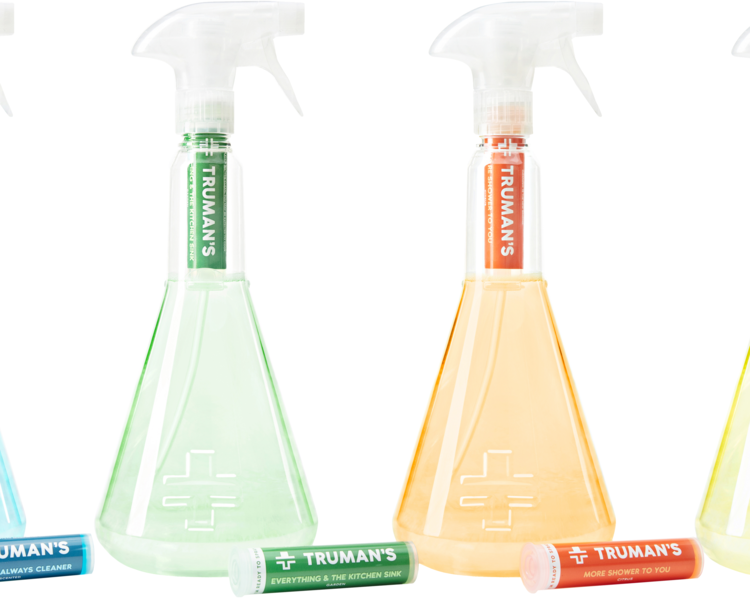
A new way to help the environment through the use of reduced materials has been introduced by US cleaning brand Truman’s. Adding water at the point of use has been used by several brands in recent times to reduce the amount of packaging used as well as to decrease supply chain carbon emissions via packs not made heavier by transporting water. Consumers combine their own water with Truman’s patented refill cartridges and can re-use the bottle many times. The refills save space with the claim that around 10 years worth of refills can in theory be stored comfortably in the average kitchen drawer. The Truman’s refills reduce plastic waste by more than 90% as well as being recyclable. The refills are $3.75 (£2.83) and the bottles as well as shipping are free for subscribers.
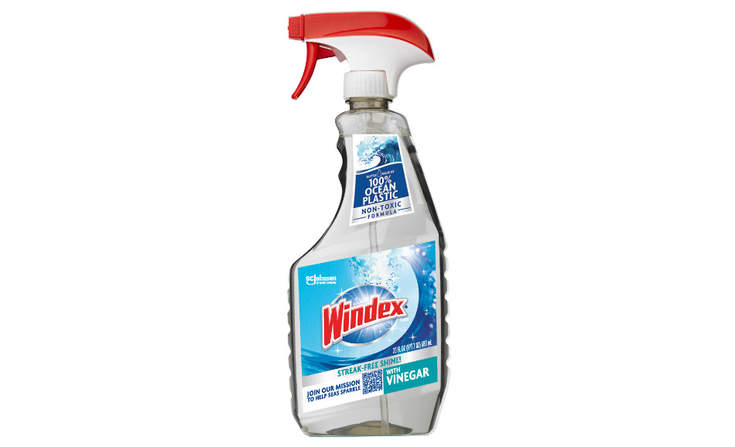
Racine, Wisconsin based multinational manufacturer of household cleaning supplies SC Johnson like several global brands as well as make all its plastic packaging recyclable, reusable or compostable by 2025. It has announced the introduction of bottles made entirely from recycled ocean plastics for one of their top selling home cleaning products. The 100% recycled ocean plastic bottle will be used for the brand owner’s Windex Vinegar home cleaning products. This big volume switch will see eight million units make the change for the USA and Canada markets. SC Johnson is also planning to launch a ‘Social Plastic’ bottle in partnership with Plastic Bank. That bottle would be made only from plastic sourced from Haiti, the Philippines and Indonesia. The initiative forms part of SC Johnson’s commitment to triple post-consumer recycled plastics in its packaging. Windex bottles have already been made from 100% post-consumer plastic for several years.
These innovations are a selection of the 2,900 articles uploaded to ThePackHub’s Innovation Zone database. If you’d like to know more please let us know. Until next time.

